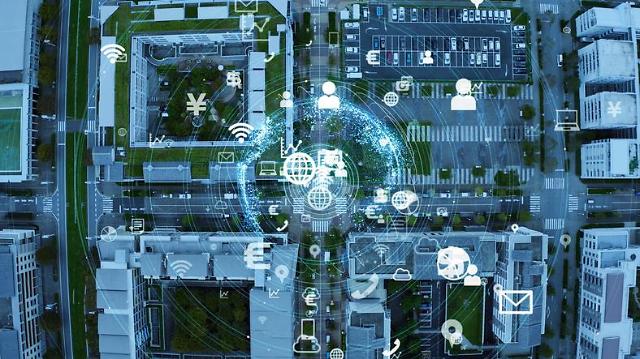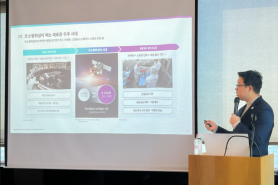
[Gettyimages Bank]
SEOUL -- NHN, an information technology company in South Korea, joined hands with HDC Hyundai Development, a comprehensive construction company, to develop new business opportunities involving smart city technologies in an effort to nurture a future growth engine that would help create convenient and safe connected cities.
NHN and HDC Hyundai Development will cooperate to establish a smart city platform center and a test bed for connected technologies. They will develop new markets at home and abroad. NHN said the company would use its cloud computing service "TOAST" to develop artificial intelligence and IoT technologies.
A smart city platform is a city infrastructure based on internet of things (IoT), WiFi and mobile data communication network. The concept is connecting every device and facility to one another so that smart cities can conveniently provide information to citizens.
Using 4G and 5G mobile communication networks, South Korea is transforming selected areas into smart cities that provide the hyper-connectivity of connected devices, sensors and autonomous vehicles.
Sejong City, a central administrative city that was designed to house a smart city network from its development stage, is favored by tech and mobility service companies because the city's environment is ideal for testing autonomous vehicles.
Sejong has lesser traffic than mega-sized cities, allowing researchers to safely test vehicles capable of communicating with on-road facilities such as traffic lights. The city plans to establish a blockchain-based trusted platform for self-driving cars through a state-led project this year. Blockchain technology enables autonomous vehicles to securely protect personal information from hacking.
Seoul, the capital city with a population of 9.7 million, is setting up its own smart city infrastructure including an optical cable network that covers 4,237 kilometers (2,627 miles). The optical cable network is designed to provide unlimited connectivity to all administrative areas without using lines provided by private mobile network providers.
Seoul will create a citywide network of free WiFi by increasing the number of wireless transmission and reception devices (APs) from 7,420 in 2019 to 23,750 in 2022. Additional public Wi-Fi APs will be installed first at bus stations, transportation facilities and CCTV support systems to reduce costs and make citizens feel more comfortable.
Copyright ⓒ Aju Press All rights reserved.




